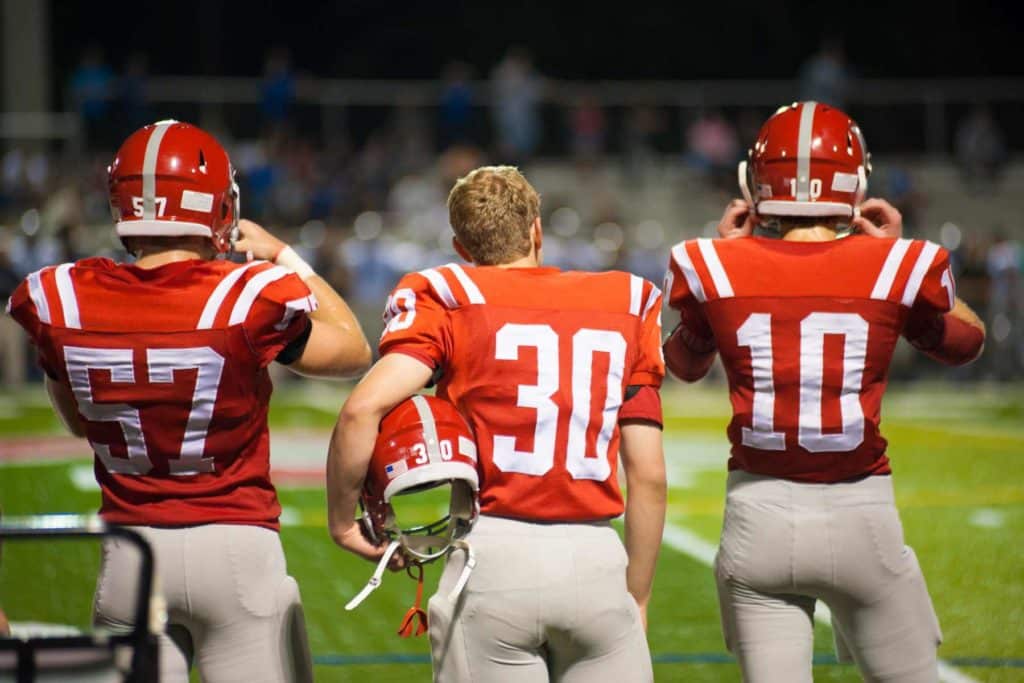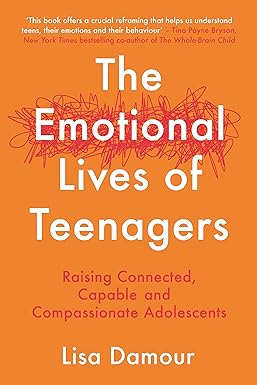
This is a contributed piece by Dr. Jennifer Brubaker. Listen to her podcast, “Reframing Me”, on Apple, Spotify, iHeart, or TuneIn.
“On any given early Saturday morning in the mid-2010s, as I tried to find socks and shin guards and cleats and uniforms and water bottles for my three soccer players, while trying to remember the team snack and figure out on which field and at which time which child was playing, all while trying to convince at least one child that yes, they were in fact going to soccer, I can promise that there was no way anyone would have convinced me that I would miss it. “On any given early Saturday morning in the mid-2010s, as I tried to find socks and shin guards and cleats and uniforms and water bottles for my three soccer players, while trying to remember the team snack and figure out on which field and at which time which child was playing, all while trying to convince at least one child that yes, they were in fact going to soccer, I can promise that there was no way anyone would have convinced me that I would miss it.
But then one day, it hits you—this is it. This is the last time I will see him in his uniform, the last time I will beam with pride and cheer with the other moms, who have become my friends, from the stands, and the last time I will get his sweaty, smelly hug on the field after the game. How did we get here so fast? And what do we do now?
High School Sports Was A Family Affair
For four years, from April through November, every single day of my family’s life has involved high school football. Eight solid months of our year centered on training, lifting, camps, practices, and strategizing. Not a day went by in our house without conversations about football, its ups and its downs. His teammates became the friends who were regularly at our house. On any given day in the summer, we had at least 10% of the football team in our yard, and I took my role as fraternity house mom seriously.
While he trained all summer with his friends, I looked forward to the actual season so I could catch up with my football mom friends in the stands on Friday nights. Once our kids no longer need rides to and from practice, and the structured “playdates” become a thing of the past, it doesn’t matter how much time their boys spent at my house, we so rarely got to talk ourselves, but being in season allowed us to do it regularly.
But like everything else as the parent of a high school senior nearing graduation, the end of his high school football was just one of a series of lasts. It’s one that hit us both hard though. For me, it’s football, but the loss is the same for the band parents, the dance team and cheer parents, theater parents, and scouting parents. Any time your kids are involved in an activity that becomes consuming of your time, energy, money, weekends, weeknights, and summers, we all face the inevitable day when the final game clock hits zero.
The End of an Era for High School Seniors
It’s the end of a chapter. There is a loss and a sense of grief. It’s the loss of an activity, the loss of a group of people who you’ve grown to feel a community with, and the loss of something that that’s been a part of their entire childhood. We’ve shared so many drives to practices, games and tournaments. We’ve had countless conversations that began with “How was practice?” or “Today at practice…” Hearing about their successes, struggles, progress, and frustrations was something that bound us together, with each other and with our kids, even in those times we feel like there’s little else that we share with our teenagers.
It’s okay to feel sad. It’s okay for us to look back and reflect and feel all sorts of emotions. To remember those early sports years when no one knew what to do with the ball. To think about the tears when they were too afraid to take the stage. We can look back and be proud. Be proud of the person they’ve grown up to be and the life lessons they’ve learned. But we can also look back and feel sad. Sad that the chapter is over. Sure, we can keep in touch with the moms, we can still have things in common and things to share with our kids, we can spend time watching them with their friends, who we’ve grown to care for. But the thing about it is that it just won’t be the same. And it’s okay to mourn that end and loss. And It’s okay for them to mourn too. And because we’re the mom, we’re going to need to help them through their grief while we’re feeling our own.
Letting Our Seniors—And Ourselves—Grieve This Loss
It is not uncommon at all for high school students who have been consumed with a sport or an activity to feel a loss of identity once it ends. It’s a mixture of confusion and sadness – the unknown and uncertainty of who they are now. They’re going to be sad and probably a bit lost. They may be bored, and they may feel or seem directionless. And as their parents, we need to be patient with them.
And we need to be patient with ourselves too – we need time to navigate who we are now, without the time-consuming activity and the built-in mom friendships. What do we do with ourselves now? We need time. Perhaps we need a hobby. But mostly we need to be allowed to grieve the end. And there is no one way to grieve; It looks different for everyone, for us, for our partners, and for our teens.
Immediately after the season ends, our teens may only look at it on the surface level, asking what do I do after school if I don’t have football? But they often don’t realize how much the sport consumed WHO they were too – everyone around them identified them as that sport. So when they’re not doing that sport anymore, it can be a really hard thing to face. They’ve been a part of a team that has been a close-knit group who trains together, hangs out together and who shares a common goal. Chances are, they even all dress the same. And pretty much everything that they do is built around their shared goals and a very routinized life. It can cause some of them to face a bit of an identity crisis.
Related: These Are the Mistakes I Made That Caused My Daughter to Quit Sports
5 Things to Expect As Your Teen Grieves the End of Their Sports Career
1. There may be a bit of a delayed response.
When you’ve been in an all-consuming season for so long, it’s often a relief to see it end. But it’s when the realization hits that, no, it’s not starting back up again, that is when the real adjustment will begin. So it is quite possible that for these fall athletes, it might not even hit them until next fall, when the team starts playing… without them.
2. They may feel a bit like they’ve gone from hero to zero.
All of the excitement and the recognition that they have gotten from their sport will all just go away. They have gotten used to us bragging about their accomplishments, their coaches giving them daily feedback, and their teammates cheering them on. But all of this recognition is for WHAT they are doing and NOT WHO they are. When the game ends, so do these accolades, and it can be hard for them to have this source of recognition die.
They will need us to recognize more of the traits that they have developed through sports, skills that have come through things like hard work, dedication, attention to detail, focus, resilience, self-discipline – so it can be helpful to help them recognize these skills applied to other areas of their life.
3. They may not be as responsible as you’ve grown accustomed to them being.
Many of the choices that they have made have been controlled by how their sports life was structured. These regimented lives directed by coaches and schedules reduces the opportunities for making poor choices with negative consequences. So, now, without those schedules made for them, they’re going to need to figure out what they should or shouldn’t do in this time of transition. And remember, much of this will also coincide with going away to college for many of them, so we need to encourage them to make good choices for things like sleeping, eating, exercise, and free time. We can help them take ownership of their new schedules.
4. Their bodies might change.
A part of their athletic schedule has always been an exercise routine, and interestingly, despite them being athletes for so long, one of the biggest challenges that they face after sports end is trying to figure out how to stay active. For years it has seemed like these kids never stopped moving, but all of the movement was for the end game of being an athlete – playing that sport. When you take away that sport, you may also take away both their motivation and their opportunity for fitness.
Their bodies may also change because the calories that they once burned without even realizing it are not being burned anymore. The muscles that were so toned as a byproduct of the game, may not be quite as toned as they once were. In their minds, they’re athletes, and their bodies should look and feel a certain way. This might lead to some body image issues.
We can help them by encouraging them to take a workout class, join a gym or a rec sports league, or maybe play intramurals in college. Doing any of these can be good for them physically, mentally, and socially.
5. They may be bored.
They may seem directionless. We can help them combat that a bit by encouraging them to learn a new skill, try something new, or set new goals. Trying new things is good for them, especially if they’ve been consumed with one thing for so long, and setting new goals gives them something to strive for and a purpose.
Related: We Need to Bring Back Rec Sports–Why This Mom’s TikTok Went Viral
Offering Guidance Even Though We Can’t Shield Them From Pain
As parents, most of us have tried to protect our kids from hurt and sadness as much as humanly possible, but this is one of those sad things that we can’t fix. A significant part of their life is ending and they are experiencing a loss. And just like any other type of loss, it can manifest physically, socially, or emotionally. We just need to be aware of just how big of a change this is for them, and we need to give them the space to feel it all.
Encourage them to share their feelings and be vulnerable about it – now isn’t the time to teach them “oh well – things end – suck it up – that’s life.” Communicate with them. Let them know that you are there for them and that what they are feeling is normal. And I know how much it hurts our mama hearts to see them hurt, but at least it can make us feel better to think about how much resilience sports has taught them – and this same resilience will get them through this loss too.
Unfortunately, our teens will experience grief and loss throughout life. This one is so hard because athletes are typically very unprepared. No one prepares them for how hard it is going to be to stop doing what they love and stop seeing themselves through the framework of the sport. Countless hours go into training them to play their positions, and yet no one ever talks to them about how they’re going to feel when it’s just suddenly all over. So it’s not shocking why they might feel pretty lost when it’s over.
At the center of it all is that we need to help them realize how much more there is to them. It’s okay to grieve, and they are not alone in doing so, but this is only where their journey begins.
For more of a conversation on the end of sports careers and conversations about all things related to raising teens, listen to “Reframing Me” (specifically the following two episodes) on Apple Podcasts, Spotify, Amazon Music and wherever you listen to podcasts.
Episode 95 “Game Over: The End of Youth Sports/Activities and Ambiguous Loss”
Episode 97: “Re: That – Post-Game”
For more advice and resources on raising teens through these challenging years, we recommend The Emotional Lives of Teenagers by Lisa Damour.

Parenting teens and tweens is challenging, but you’re not alone. Here are some posts other parents have found helpful:
50+ Awesome and Inspirational Quotes for Teenagers
10 Common Problems Middle School Girls Face (And How Parents Can Help)
30+ Inspirational Sports Movies to Connect with Your Teen
Teen Boys Need These 9 Simple Things to Get Through These Tough Years
*This post may contain affiliate links where we earn a small commission for purchases made from our site.






Leave a Comment